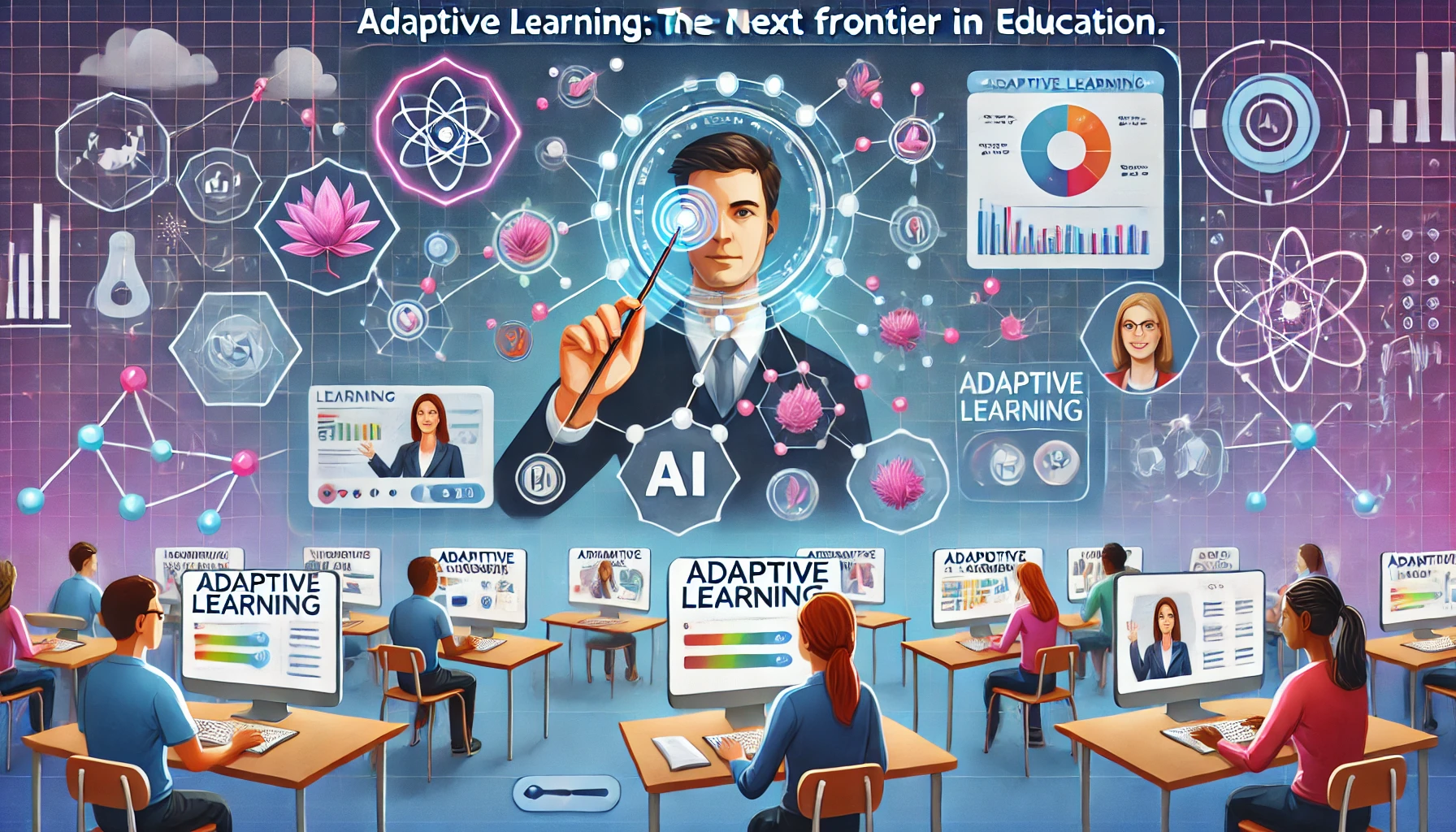Adaptive Learning: The Next Frontier in Education. As technology continues to reshape the way we learn, adaptive learning stands out as a groundbreaking innovation. By personalizing the learning experience to meet the unique needs of each individual, adaptive learning promises to revolutionize education and training in the digital age.
What is Adaptive Learning?
Adaptive learning is an educational method that uses data analytics and artificial intelligence to tailor content, pace, and delivery methods to the learner’s needs. Unlike traditional approaches, which apply a one-size-fits-all strategy, adaptive learning dynamically adjusts based on performance, preferences, and progress.
Key Features of Adaptive Learning
- Personalized Pathways: Learners receive customized content and exercises aligned with their abilities and goals.
- Real-Time Feedback: Immediate insights help learners understand mistakes and improve performance.
- Scalable Solutions: Adaptive learning platforms can accommodate thousands of users simultaneously while maintaining a personalized approach.
Benefits of Adaptive Learning
Adaptive learning offers a host of advantages for both educators and learners:
- Improved Engagement: Personalized content keeps learners motivated and focused.
- Efficient Learning: Adaptive systems identify gaps and prioritize critical areas, reducing time spent on already-mastered topics.
- Accessibility: Adaptive platforms often support diverse learners, including those with disabilities or non-traditional learning styles.
Applications of Adaptive Learning
1. Corporate Training
Adaptive learning platforms are increasingly used in corporate environments to upskill employees efficiently. For example:
- Customizing leadership training for individual managers based on performance metrics.
- Streamlining onboarding programs to suit varying levels of new hires’ prior knowledge.
2. K-12 Education
In schools, adaptive systems help teachers provide individualized support to students struggling with specific subjects or concepts.
3. Higher Education
Universities are adopting adaptive platforms for large-scale courses, ensuring students with different learning speeds can succeed.
Technologies Driving Adaptive Learning
Several technologies enable adaptive learning systems:
- Artificial Intelligence: Algorithms analyze learner data to adjust content dynamically.
- Big Data Analytics: Massive datasets provide insights into learner behavior and outcomes.
- Gamification Elements: Points, rewards, and challenges keep learners engaged while advancing through their personalized paths.
Challenges of Adaptive Learning
While promising, adaptive learning faces certain obstacles:
- High Initial Costs: Implementing adaptive platforms requires significant investment in technology and training.
- Privacy Concerns: Collecting and analyzing personal data can raise ethical and security issues.
- Content Development: Building adaptive content requires expertise and time to ensure quality and effectiveness.
Future of Adaptive Learning
With advancements in AI and data science, the future of adaptive learning is bright. Emerging trends include:
- Integration with AR/VR: Immersive experiences will make adaptive learning even more engaging.
- Global Accessibility: Cloud-based solutions will bring adaptive learning to underserved regions worldwide.
- Deeper Personalization: AI advancements will enhance the ability to predict and address individual learner needs.
Conclusion
Adaptive learning is transforming the education landscape by making learning more personalized, efficient, and accessible. While challenges remain, the potential of this technology is limitless. Organizations and educators willing to embrace adaptive learning will lead the way in shaping the future of education.





Leave a Reply